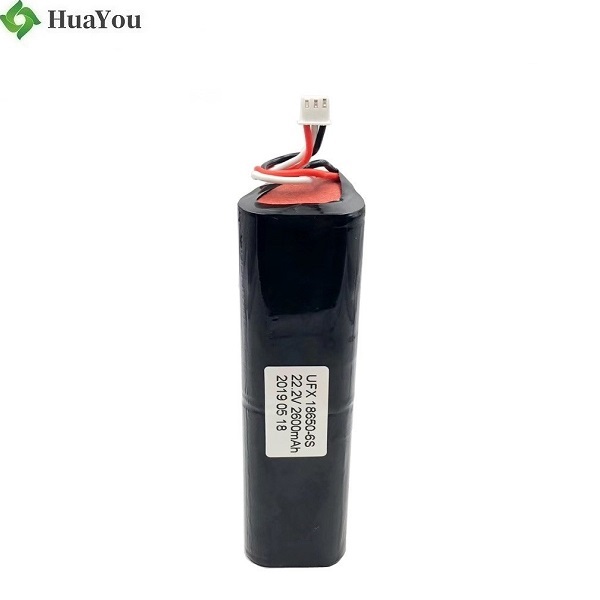There are many reasons for the explosion of 18650 lithium-ion batteries, mainly three.
1. Overcharged
Overcharging is a common cause of explosion of 18650 lithium-ion batteries. Lithium-ion batteries must work within the specified voltage range, otherwise there will be potential safety hazards of explosion and fire. For example, the normal voltage of a ternary lithium battery is 2.5V~4.2V; the normal voltage of a lithium iron phosphate battery is 2.0V~3.65V.

When the 18650 lithium ion battery is charged, the lithium ions of the positive electrode move to the negative electrode and are embedded in the network structure of the negative electrode material. If the lithium ion battery is overcharged, it will easily cause the negative electrode lithium to precipitate, causing lithium crystals and piercing the diaphragm. Causes a short circuit inside the battery, which can cause an explosion.
This is why an overcharge protection circuit is added to the lithium-ion battery during charging to protect the lithium-ion battery from being overcharged. The lithium-ion battery protection board monitors the voltage of each string of the lithium-ion battery pack. If the overcharge voltage is exceeded, the lithium-ion battery protection board will cut off the charge to protect the lithium-ion battery.
If the lithium-ion battery pack explodes due to overcharge, it is mostly because the voltage of some of the lithium-ion batteries is zero, or the protection board is abnormal, and the lithium-ion battery cannot be overcharged. There is also a charger error.
For example, a 36V lithium-ion battery pack requires 10 strings of ternary lithium. If the voltage of the 2 strings of cells becomes 0V, the 42V charging voltage of the charger will directly charge the remaining 8 strings, and the protection board will not function properly. Can not provide overcharge protection function. The uniform voltage of the 8 strings of cells will be charged to more than 5.25V by the charger (42V/8 strings). This can cause the lithium-ion battery to overcharge and cause an explosion.
If the charger is used improperly, and the lithium-ion battery pack is not charged according to the designated special charger, the lithium-ion battery protection board will also be abnormal, causing the lithium-ion battery pack to overcharge.。
For example, for a 36V lithium-ion battery pack, the output voltage of a dedicated charger should be 42V. If a 72V lithium-ion battery pack charger is used (charging voltage is 84V), the 84V charging voltage is directly added to the 36V lithium-ion battery pack. On the other hand, the components of the protection board are easily damaged and their functions are prone to failure. At this time, the lithium-ion battery pack will be charged without protection. The cell voltage of each string is above 8.4V (84V/10 strings). The full charge voltage of ternary lithium is 4.2V. The ternary lithium battery is more dangerous, and it is easy to cause an explosion.
Therefore, please use the lithium-ion battery correctly, use the lithium-ion battery protection board correctly, and use the lithium-ion battery charger correctly.
2. Short circuit
The 18650 lithium-ion battery is short-circuited, including internal short-circuit and external short-circuit, will cause the explosion of the 18650 battery.
There are many reasons for internal short circuits. One of the reasons is the problem of processing technology. There are impurities in it. During the use of lithium-ion batteries, the internal positive and negative electrodes are short-circuited, causing an explosion. Another reason is that external needle sticks or squeezing cause short circuit of internal materials, which can cause fire or explosion.
3. High temperature
If the temperature is too high, it will also cause the 18650 lithium-ion battery to explode. The normal operating temperature range of lithium battery is 0~45℃ for charging; -20~65℃ for discharging; 0~45℃ for storage.
Lithium-ion battery protection board usually sets the battery charging high temperature to 50℃ for protection; discharging high temperature 70℃ for protection. If there is no high temperature protection, the lithium battery will continue to be discharged or stored, which will cause the lithium battery to explode.
The internal raw materials of lithium batteries will deteriorate above 120°C. Like the separators of the internal materials of lithium batteries, the internal separators of lithium-ion batteries are generally more common. The partition will shrink above 120°C. If the separator shrinks, the positive and negative materials will directly contact and cause a short circuit. A short circuit will generate high temperature, which will open the battery safety valve, release hot gas, and cause deflagration or explosion.



